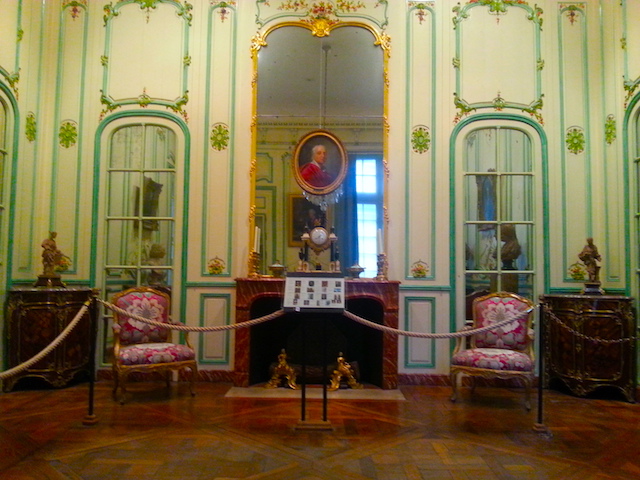A Childhood at Versailles consists of the first 5 chapters of the memoirs of Mme de Boigne (1781-1866), née Adèle d’Osmond, who was a French salon hostess and writer. She was born in the Château de Versailles and lived at the court of Louis XVI and Marie-Antoinette until her family fled to England during the Revolution. Later in her long life, she married a rich soldier of fortune 30 years her senior, hosted a brilliant salon in Paris, and became an intimate of the last French queen, Marie-Amélie, consort of King Louis Philippe (r. 1830-1848). Childless herself, Mme de Boigne addressed her memoirs to her grandnephew. The memoirs were not published until 1907, under the title Récits d’une tante, or An Aunt’s Tales. They’ve never been published in English, as far as I know, so I’ve decided to translate the first 5 chapters, the ones that take place mainly at Versailles, and post them here on this blog for interested readers to enjoy for free.
The chapters are quite lengthy, so I’ve broken each one into several parts. In Part 2.3, the author recalls the Princesse de Guéméné, the rather eccentric governess of Louis XVI and Marie Antoinette’s children. At any rate, she was their governess until a sudden reversal of fortune…
A Childhood at Versailles, Chapter Two, Part 3 (Part 2.3)
At Versailles, the Princesse de Guéméné’s house was the one most frequented by my parents. My father had some family connection to her, and she overwhelmed them with kindness. She was a very singular person. She had a great deal of intellect, but she put it to use by plunging into the follies of spiritualism. She was always surrounded by a multitude of dogs to whom she rendered a kind of worship, and let on that through them she was in communication with intermediary spirits. In the middle of a conversation in which she showed wit and judgement, she would suddenly stop short and fall into a trance. She sometimes told her intimates what she had learned on these occasions and was offended to notice any signs of incredulity.
One day my mother found her in her bath, wreathed in tears.
“You are ill, princess!”
“No, child, I am sad and horribly tired; I spent the whole night fighting for this unfortunate child (motioning towards the Dauphin), but I could not beat them. They won and there will be nothing left for him, alas! And what a fate the others shall have!”
My mother, accustomed to the princess’s aberrations, paid little attention to these words; she remembered them afterwards and told them to me.















